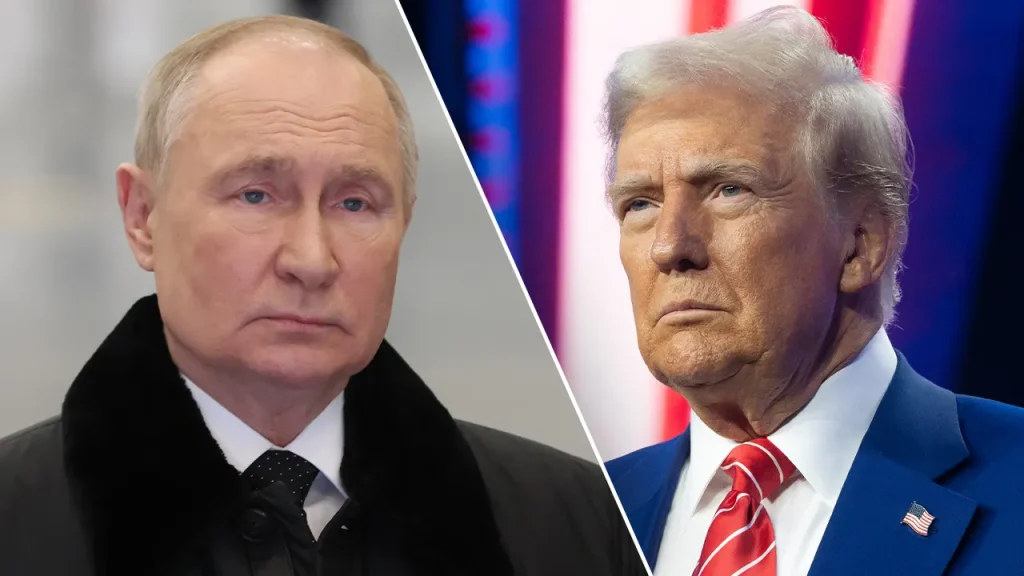The Complexities of Denuclearization: Trump’s Ambitions and the Realities of Global Power Dynamics
Former President Donald Trump’s repeated calls for denuclearization talks, while seemingly noble, are fraught with complexities and challenges. His proposals, voiced during his presidency and reiterated afterwards, envision a world free of nuclear weapons, a goal shared by many. However, the path to achieving such a goal is riddled with obstacles, including mistrust between nations, the weaponization of arms control negotiations, and the evolving landscape of nuclear proliferation.
Trump’s vision, articulated during his time in office and in subsequent interviews, centered on bringing Russia and China to the negotiating table. He believed a deal with Russia was within reach during his first term, only to be derailed by the 2020 election. While the idea of the U.S., Russia, and China collaborating on nuclear disarmament holds a certain appeal, the reality of their relationships is far more complicated. Russia, under President Vladimir Putin, has demonstrated a willingness to use nuclear rhetoric and arms control as leverage in geopolitical disputes, particularly regarding the war in Ukraine. China, meanwhile, remains opaque about its nuclear ambitions, with its arsenal growing at an alarming rate. These factors raise serious questions about the feasibility of genuine cooperation on denuclearization.
Historically, arms control agreements between the U.S. and Russia, such as the New START treaty, have played a crucial role in managing the nuclear threat. However, these agreements are fragile and susceptible to political maneuvering. Russia’s suspension of its participation in New START, citing U.S. support for Ukraine, exemplifies this vulnerability. Accusations of Russian violations of the treaty further erode trust and complicate efforts to revive or renegotiate such agreements. China’s reluctance to engage in arms reduction talks with the U.S. adds another layer of complexity to the global nuclear landscape.
The backdrop against which these discussions unfold is a world increasingly concerned about nuclear proliferation. North Korea’s growing nuclear arsenal and Iran’s advancements in uranium enrichment pose significant regional and global security challenges. These developments underscore the need for a comprehensive approach to non-proliferation that goes beyond bilateral agreements between major powers. A successful denuclearization strategy must address the motivations and capabilities of all nuclear-armed states, as well as those aspiring to acquire such weapons.
While the goal of denuclearization is laudable, the path forward is far from clear. Experts point to several key considerations. First, the U.S. must develop a robust strategy for deterring multiple nuclear adversaries simultaneously, including the potential for alliances between nations like Russia, China, North Korea, and Iran. Second, any arms control negotiations must be approached with a clear understanding of the potential for manipulation and bad faith. This requires strong verification mechanisms and a willingness to walk away from deals that do not serve U.S. interests.
Furthermore, the U.S. must address the cost and effectiveness of its own nuclear arsenal. Maintaining a vast and aging nuclear stockpile requires significant financial resources, raising questions about the long-term sustainability of the current approach. Modernizing the arsenal while also exploring opportunities for cost savings should be a priority. Finally, the U.S. intelligence community must continue to enhance its capabilities to monitor compliance with arms control agreements. Effective verification is crucial to ensuring that any reductions in nuclear arsenals are genuine and sustainable.
The history of nuclear arms control is a testament to the challenges of achieving meaningful progress. From the initial race to build the largest arsenals during the Cold War to the emergence of new nuclear powers, the international community has grappled with the dangers of these weapons. While bilateral treaties, such as the INF Treaty, have achieved some success in reducing nuclear stockpiles, the evolving geopolitical landscape demands a more nuanced and comprehensive approach.
Trump’s calls for denuclearization, while well-intentioned, must be viewed in the context of these complexities. Simply bringing adversaries to the negotiating table is not enough. Successful denuclearization requires a clear strategy, a commitment to verification, and a willingness to address the underlying drivers of nuclear proliferation. The stakes are high, and the world cannot afford to rely on simplistic solutions to one of the most pressing challenges of our time.

